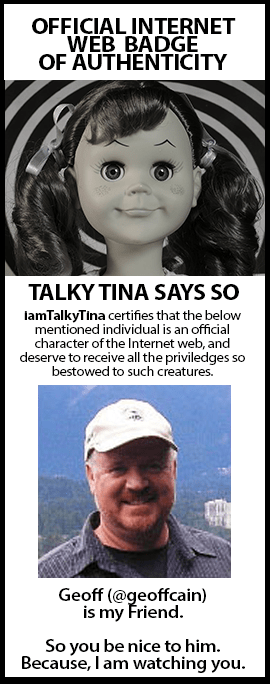 My first session at the Cascadia Open Education Summit was Zoe Wake Hyde’s Community as Infrastructure: Building a scalable, sustainable approach to open textbook publishing. I am very excited about this presentation because I have been following the Rebus Foundation fairly closely because I think their model is one of the few viable and truly sustainable models out there.
My first session at the Cascadia Open Education Summit was Zoe Wake Hyde’s Community as Infrastructure: Building a scalable, sustainable approach to open textbook publishing. I am very excited about this presentation because I have been following the Rebus Foundation fairly closely because I think their model is one of the few viable and truly sustainable models out there.
According to the program:
Attendees will:
* Learn about alternative and collaborative approaches to open textbook publishing
* Reflect on role of community and collaboration in their own work, and consider what other communities they can connect with
* Find ways to contribute to wider discussions about open textbook publishing happening in the broader OER community
This session will share how Rebus’ efforts to fuse community and publishing process has evolved over the past two years, and our direction for the next two, with a hands-on demonstration of the next-generation version of our platform. This platform creates a space for the open education community to come together and self-organise around OER creation, with guiding structures for a collaborative approach to publishing, and a central focus on coordination within disciplines, institutions, regions and other ‘subcommunities’. In addition, the platform can be a place to gather and explore the challenges we are facing together as we build a new, more inclusive publishing system.
By facilitating hands-on open textbook projects and engaging deeply with others working to address the big questions in the OER space, Rebus can be a catalyst for the growing knowledge and experience within the community, and work to channel it into robust and essential infrastructure that can radically change how educational content is created, and who is able to access that process. In addition, we can work together to ensure that the values of the community are deeply embedded in any emerging systems, including accessibility, inclusivity, self-determination and more distributed & equitable power structures.
The workshop will also be an opportunity for anyone interested in this approach to offer feedback and contribute to the direction of the platform, particularly with regard to needs they see in their own contexts.
___________________________________________________________
My brief notes:
I am here to find new models and approaches to sustainable OER – community as infrastructure. They are building a global community (people, practices, tools) that works together open textbook publishing.
- No gate keepers!
- The people who want to make content should be able to do it themselves.
- How do we build best practices around accessibility and technical openness.
- Creation is always collaborative – myth of the author. Being deliberate about this opens up possibilities, sharing the load.
- Community investment is critical to longterm success & sustainability of OER.
- More than just content but a community.
Some Resources:
- Documentation, videos, summaries
- The Rebus Guide to Publishing Open Textbooks.
- A Guide to Making Open Textbooks with Students.
- Office Hours with OTN
- Newly relaunched platform: support forum, contributor market place, discussion space.
Maybe this would be a good home for the “Indigenous People’s Reader.”
For future:
- Redesigning project homepage, project tools, searchable directories, connect other projects and the people working on them.
- Institutional support offerings
- Institutional platform offering
Look into monthly office hours.




